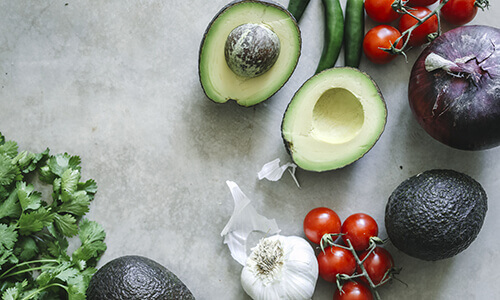
We must always handle food under the most hygienic conditions. However, in summer, due to the heat, we must be especially careful, as there is a greater chance of food spoiling, bad smells in the kitchen, and the growth of unwanted micro-organisms.
Wash your hands before cooking and storing food. Clean and disinfect fruit, vegetables and greens. This is even more important in summer, when we often eat them raw and fresh in salads and don't cook them. Do not use the same utensils to handle meat, fish, and other products, otherwise cross-contamination may occur.
If you have made a lot of food, have leftovers, and want to save them for later or for the next day, use specially designed food storage containers or bags. Separate the products from each other, and prevent insects and other unwanted creatures from eating your food. Put all perishable foods in the fridge to extend their shelf life.
With the heat and high temperatures of summer, it is a very bad idea to leave cooked dishes at room temperature. A spatial strategy could be to place products that will keep longer at the back, in the less visible part, and those that need to be consumed more quickly at the front. It's a shame to waste food, so label bags and containers with dates so you know when to use them. Do not open the refrigerator constantly so as not to waste energy and so that the food does not suffer temperature variations.
On the one hand, cooked food, meat, and fish should be kept at a temperature of between 1 oC and 4 oC in the coldest part of the refrigerator. On the other hand, it is sufficient to keep fruit and vegetables at a temperatura of between 5 oC and 8 oC.
Even if you have labelled the containers perfectly and placed them in the most visible part of the fridge, it is likely that you will forget they are there, and that due to the lack of organisation, habits, and routine that affects us in summer (with a multitude of outings and meals out), too much time will pass and you will have to throw food away.
If you follow the previous advice, you will be safe from food poisoning and other dangers that can ruin your holiday.
It is worth mentioning products such as eggs, which are widely consumed in sauces and a great number of successful recipes, and whose poor preservation causes numerous illnesses during the summer period, such as salmonella or salmonellosis. Store the eggs in the refrigerator and protect them from sudden changes in temperature.
As explained so far, food can be damaged if you open the fridge door a lot, so it is best to place eggs at the bottom of the fridge. If you have cooked mayonnaise or salad, only leave it out of the fridge when you are eating it. When you are not eating it, store it in the refrigerator.
In summer, high temperatures can seriously affect it if you leave it on the table for too long. To avoid any nasty surprises, also keep all kinds of dairy products in the fridge: cheese, curds, milk, or yoghurt.